- Home /
- Academy /
- Technical SEO /
- Simplifying SEO - How Canonical URLs Can Help Resolve Duplicate Content?
Simplifying SEO - How Canonical URLs Can Help Resolve Duplicate Content?
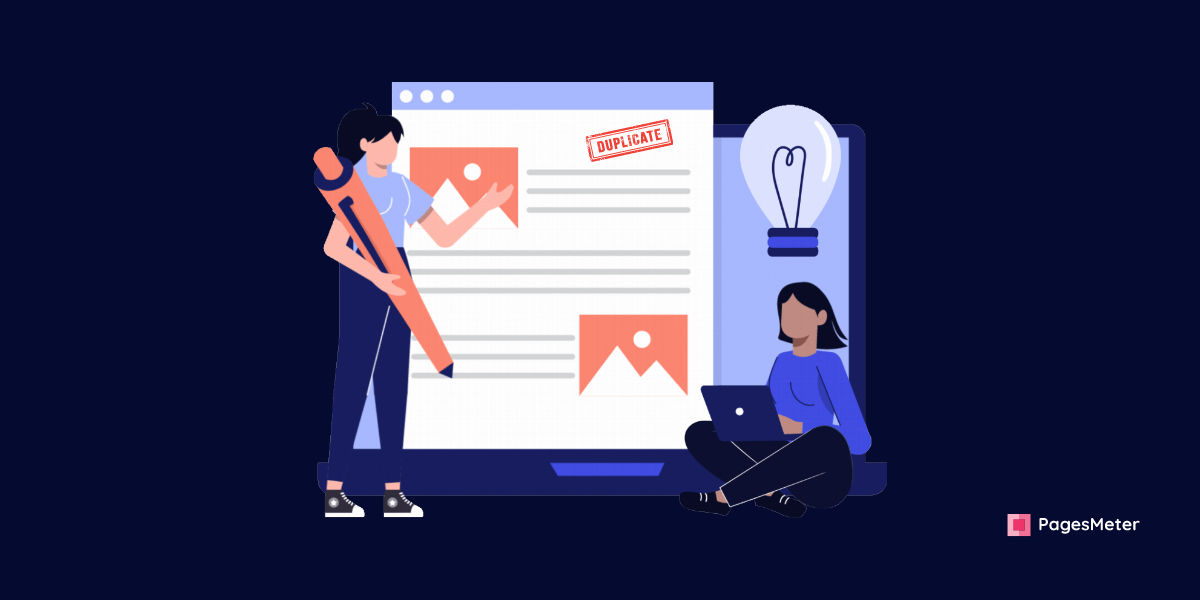
What is a canonical URL?
A canonical URL is the URL of the most representative page among several duplicate pages.
When page A contains a canonical link element that refers to page B, it is said that page A has been canonicalized.
Canonicalization refers to the process of selecting a preferred version of a page over multiple other versions.
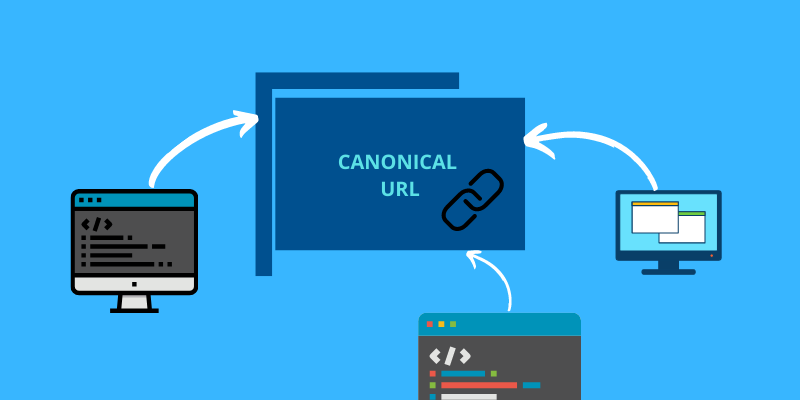
If you have multiple nearly identical pages, Google can group them (for example, pages that differ only in the sorting or filtering the contents, such as by price or item color) and select one as canonical.
Google can index only the canonical URL from a set of duplicate pages.
That means the pages do not have to be identical; minor differences in sorting or filtering list pages do not make the page unique (for example, sorting by price or filtering by item color).
A duplicate URL may be in a different domain than the canonical URL.
Why do we require a canonical URL?
The canonical URL prevents duplicate content, both internally and externally. Internal same content occurs on your website.
External duplicate content occurs when duplicate or very similar pages exist on different domains.
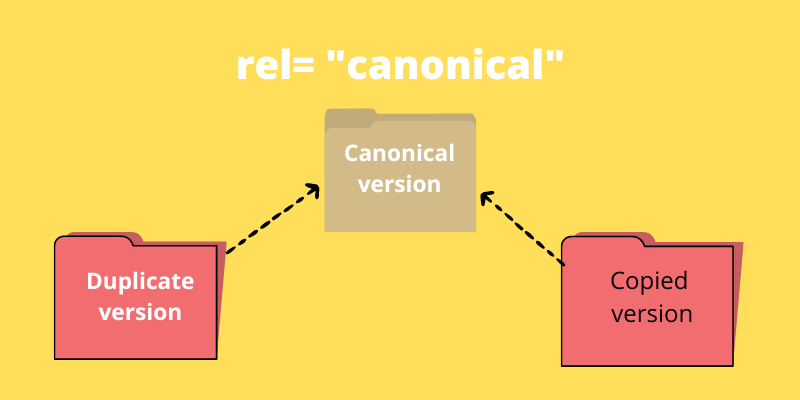
Canonical URLs help to avoid duplicate content issues.
The canonical URL tells Google, Bing, and Yahoo which pages to show and which to hide in search engine result pages.
Although search engines may choose to ignore the canonical URL, it does give you more control over your website's online presence as a website owner.
How does a canonical URL appear?
When people visit your site, they will not see the canonical URL. A canonical URL can be specified in the page source or the HTTP header.
(i) Page origin
The canonical URL should be placed in the page source's <head>section.
The canonical URL for the home page is given below:

(ii) HTTP Header
You can use a rel="canonical" HTTP header (rather than an HTML tag) to indicate the canonical URL for a document supported by Search, including non-HTML documents such as PDF files if you can configure your server.
Only Google(opens in a new tab) currently supports defining the canonical URL via HTTP header.
Google does not support(opens in a new tab) a canonical defined via the HTTP header for images.
When is it appropriate to use a canonical URL?
There is no scenario in which including a canonical URL is a bad idea. Google, Bing, and Yahoo depend primarily on canonical URLs to determine which pages to show and which to hide in search engine result pages.
The canonical URL can either refer to itself or another courier.
1. The canonical URL refers to itself:
If a page has only one version, make sure the canonical URL is self-referencing. This essentially tells search engines, "I'm the only version of this page, and I should be indexed."
2. Canonical URL pointing to another page
If a page has multiple versions, make sure the canonical URL refers to the version you want search engines to index. Canonical URLs are commonly used to resolve duplicate content issues in the following situations:
- When the URL contains query parameters.
- When two pages are nearly identical, they are referred to as near duplicates.
- When multiple versions of a page were created on purpose.
(i) URL query parameters:
URLs may contain query parameters depending on the URL structure of a website. URL query parameters are used to request specific content.
(ii) Pages that are slightly different (near duplicates):
When two pages are slightly different, they are referred to as 'near duplicate pages' or 'near duplicates.' E-commerce websites that sell shoes are a good example of near-duplicate pages.
Assume you have a Nike Air Max shoe in size 38 that comes in red, blue, and black. When you change the colour, the URL changes, but the majority of the page content remains the same.
(iii) Created multiple versions of a page on purpose:
There are numerous reasons for creating multiple versions of a page on purpose. Here are two examples: Campaign landing pages that are personalized. Running conversion rate optimization tests in which three versions of the same page with essentially the same content are tested. When there are multiple versions of a page, ensure that the canonical URL points to the preferred version that you want to be indexed. When a canonical URL refers to another URL, search engines learn: "There are multiple versions of my page that are either identical or very similar; index the page I'm referencing to ensure your index is nice and clean."
What are the best practices when it comes to canonical URLs?
Duplicate content issues can be especially tricky, but here are a few things to keep in mind when employing the canonical tag:
1. Self-referential canonical tags
It is acceptable for a canonical tag to point to the current URL.
In other words, if URLs X, Y, and Z are duplicates and X is the canonical version, putting the tag pointing to X on URL X is acceptable.
This may appear obvious, but it is a common source of confusion.
2. Canonicalize your home page ahead of time.
Given the prevalence of homepage duplicates and the fact that people may link to your homepage in a variety of ways (over which you have no control).
It's usually a good idea to include a canonical tag in your homepage template to avoid unforeseen problems.
3. Check your dynamic canonical tags for errors.
When a site has bad code, it may generate a different canonical tag for each version of the URL (completely missing the entire point of the canonical tag).
Check your URLs carefully, particularly on e-commerce and CMS-driven sites.
4. Avoid sending mixed signals
Search engines may ignore a canonical tag or interpret it incorrectly if you send mixed signals. To put it another way, don't canonicalize page A -> page B and then page B -> page A.
Don't, for example, canonicalize page A -> page B and then 301 redirect page B -> page A. It's also not a good idea to chain canonical tags (A—>B, B—>C, C—>D) if possible.
Send clear signals, or search engines will make poor decisions.
5. Exercise caution when canonicalizing near-duplicates.
Most people associate canonicalization it is generally acceptable to use canonical tags for very similar pages, such as a product page that only differs by currency, location, or a minor product attribute.
Keep in mind that non-canonical versions of that page may not be ranked, and if the pages are too dissimilar, search engines may disregard the tag.
6. Make cross-domain duplicates canonical.
You can use the canonical tag across domains if you own both sites.
Assume you own a publishing company that frequently publishes the same article on a half-dozen different websites.
Using the canonical tag will concentrate your ranking power on a single website. Remember that canonicalization will prevent non-canonical sites from ranking, so make sure this use is appropriate for your business case.
What are the advantages of canonical tags for SEO?
Setting your URL correctly has the following benefits in terms of SEO:
- You can specify your preferred domain here. Previously, this could be done through Google Search Console, but now the canonical tag is the only way to tell search engines what you like.
- Allows you to choose which version of the page should appear in search results.
- By combining links, you can boost the PageRank of specific pages.
- When other websites steal your content, you can use this to protect your PageRank. This is a great way to optimize your site's crawling while avoiding crawling pages with duplicate content.
Conclusion
The last thoughts on Canonical URLs as a result, it's best to deal with this as soon as possible and keep an eye on where your content is being republished online.
And so in the above blog, we came across the meaning, guidelines and practices, limitations, and the need for canonical URL and the entire strategy and various other aspects of canonical URL.
Start using PagesMeter now!
With PagesMeter, you have everything you need for better website speed monitoring, all in one place.
- Free Sign Up
- No credit card required
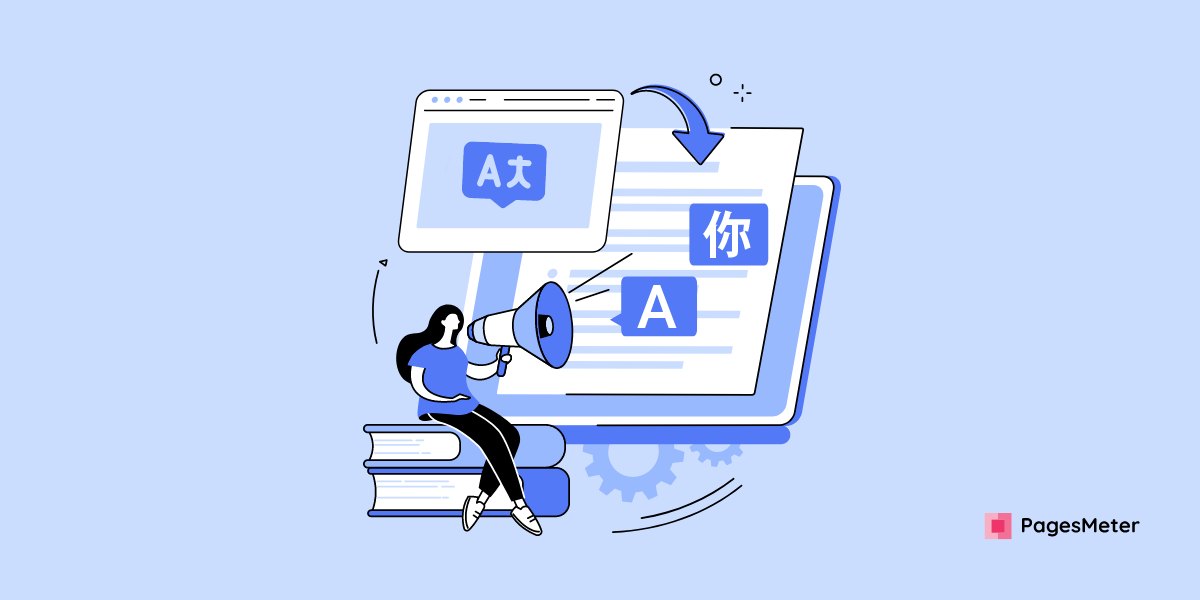
The hreflang attribute is used to specify which language your content is in and which geographical region it is intended for.

A search engine spider has a "allowance" for how many pages on your site it can and wants to crawl. This is referred to as a "crawl budget."
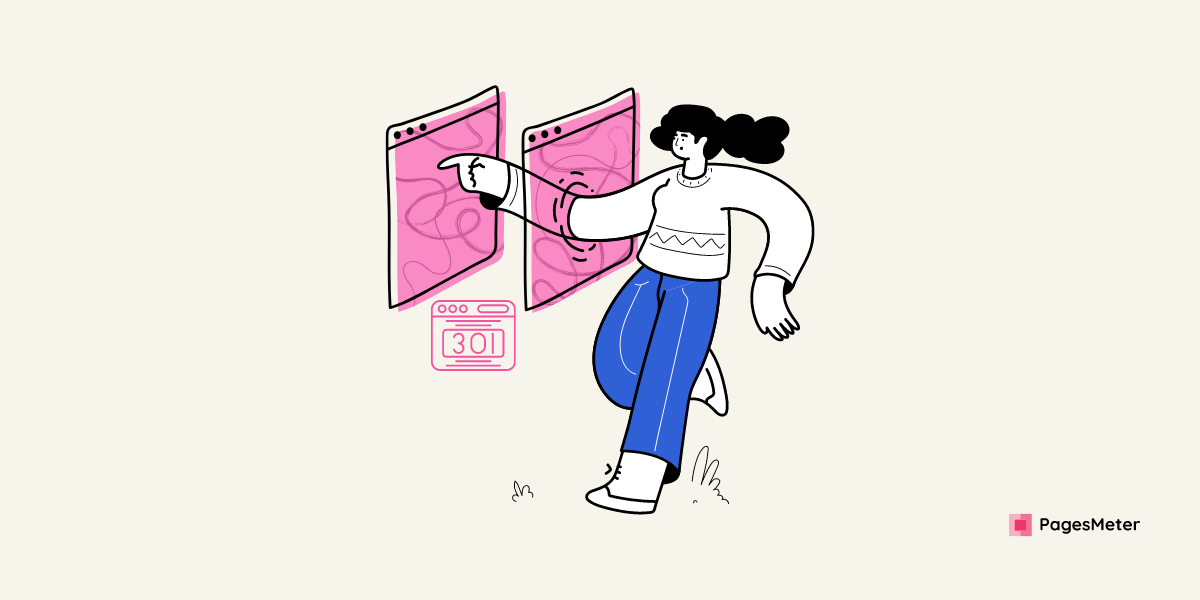
The URL redirect also known as URL forwarding is a technique to give more than one URL address to a page or as a whole website or an application.
Uncover your website’s SEO potential.
PagesMeter is a single tool that offers everything you need to monitor your website's speed.